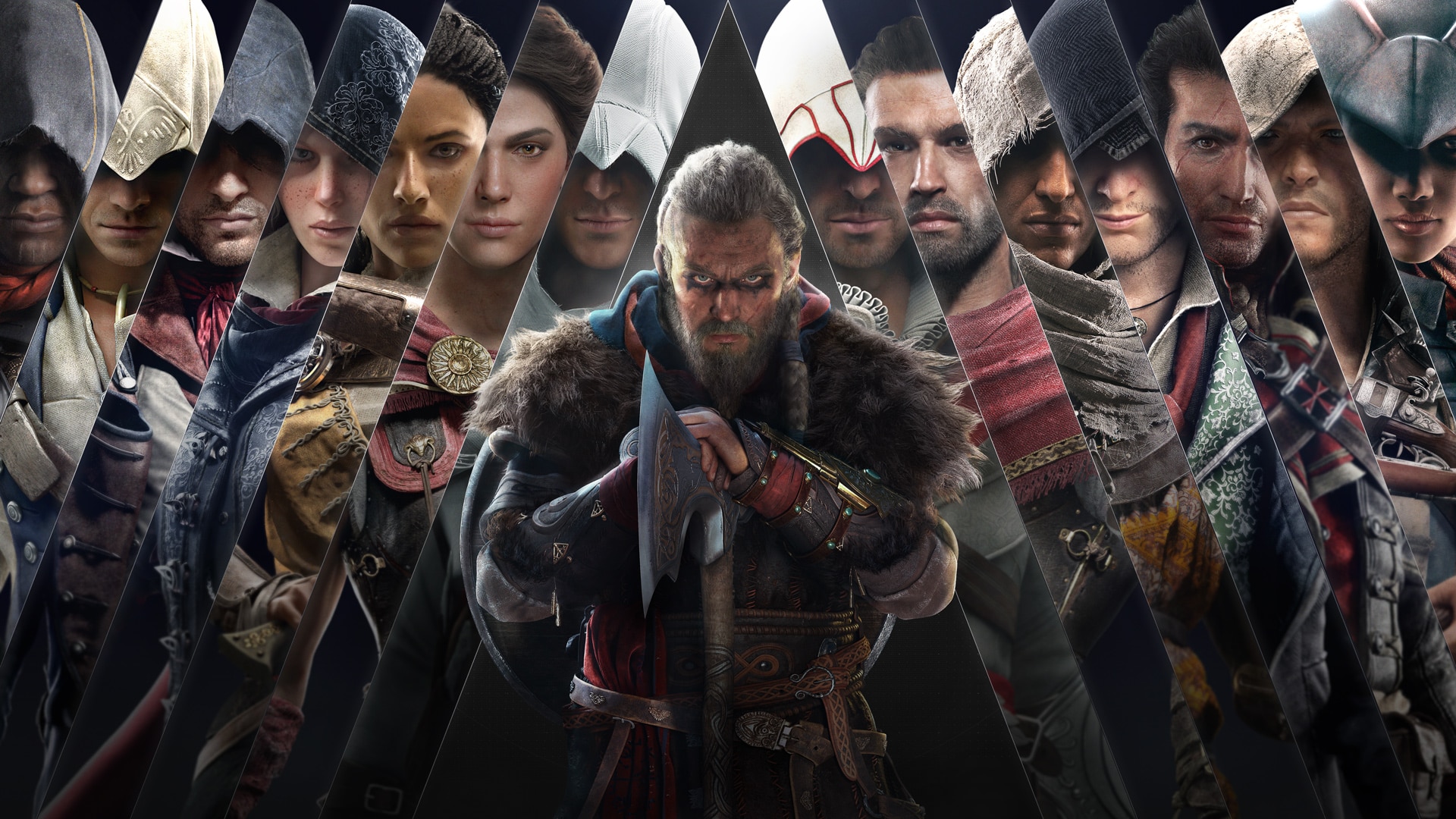
The Fall/Holiday of 2007 will go down in history as one of the greatest gaming periods ever. 16 years later, one can trace back to this specific moment in time to witness both the peak of many longtime franchises and the birth of many generational defining classics. How to forget the peaks of finishing the fight on “Halo 3.” The kindly twists of “Bioshock.” The multiplayer revolution of “Call of Duty 4: Modern Warfare.” Uncovering Sir Francis Drake’s treasure in “Uncharted: Drake’s Fortune.” Adventuring through the galaxy spanning adventures of “Super Mario Galaxy.” Saving humanity of impending extinction with “Mass Effect.” More importantly, the time hopping assassinations of secret society members during the Crusades of the Holy Land in “Assassin’s Creed.”
Back in this legendary period of time, no other new franchise looked as alluring and intriguing as “Assassin’s Creed.” Here was a new game from Ubisoft (the makers of franchises like Tom Clancy’s Splinter Cell and Prince of Persia), introducing a new breed of “pseudo stealth-action” in a time period rarely seen in games. Leveraging the current technology of the time, it was the kind of ambitious game that’d scream, “This is next-gen!” Some questionable design decisions and repetitive gameplay held the first game back from true greatness. However, there was no denying the potential and ambition on display. A potential the subsequent sequels eventually realized.
16 years later, and 13 mainline titles and a diverse array of spinoffs released, the “Assassin’s Creed” franchise is Ubisoft’s most successful franchise still ongoing. For better or worse, it helped usher in the open world era we live in, providing a formula template for many other open world games to follow.
A year after the 15th Anniversary of the franchise and with the recent release of “Assassin’s Creed Mirage“, here is a current ranking of the 13 mainline titles (portable and mobile spinoffs excluded) celebrating the best and worst of this ongoing franchise. The ranking is determined by both franchise impact and how the games fare in the year 2023 through a recent replay. Without further ado, here’s the ranking of the Assassin’s Creed franchise up to date!
13. Assassin’s Creed Unity
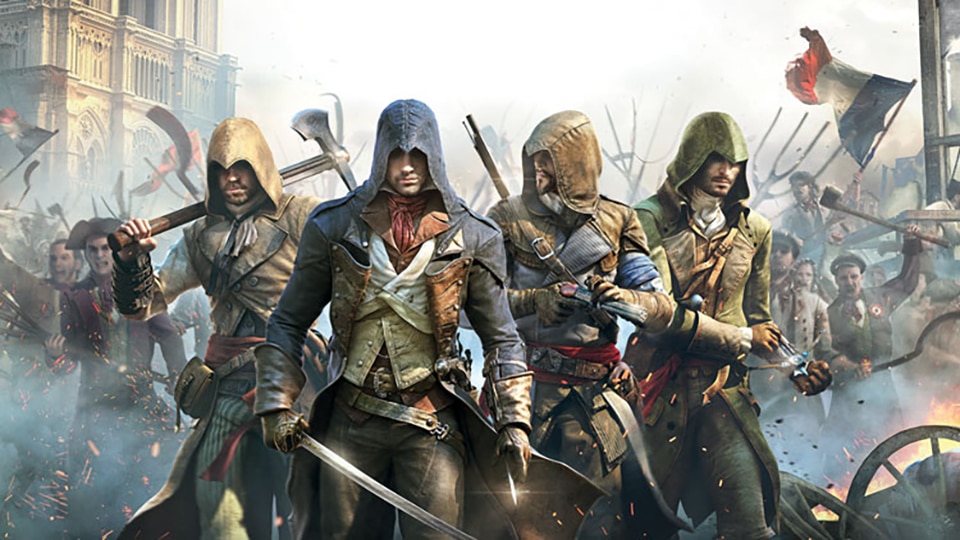
“Assassin’s Creed Unity” has the legendary status of being the one game that hurt the brand significantly upon release. There is no denying that the game has its good merits. It has a level of technological ambition Ubisoft has yet to match. The parkour is the best looking and most fluid of the series (when it works). It also offered an interesting proof of concept for co-op for the series. Unfortunately, its strengths were rendered null amidst the game’s massive launch stability issues and brokenness marring the proceedings. A story with a half baked “Romeo & Juliet” romance between protagonist Arno and love interest Elise ultimately goes nowhere. Even worse, the game goes out of its way to tell you everything about it was a waste of time. The game’s strengths shine a bit more now after everything has been fixed (and enjoying a 60fps boost via the Xbox Series X/S). Unfortunately, it doesn’t prevent “Assassin’s Creed Unity” from being the ultimate low point of the franchise. Even though its stature has grown over time now that it has been fully fixed, there is a certain stench to this game it sometimes can’t quite get away from. There’s a reason Ubisoft rethought the series’ approach from this point forward.
12. Assassin’s Creed Rogue
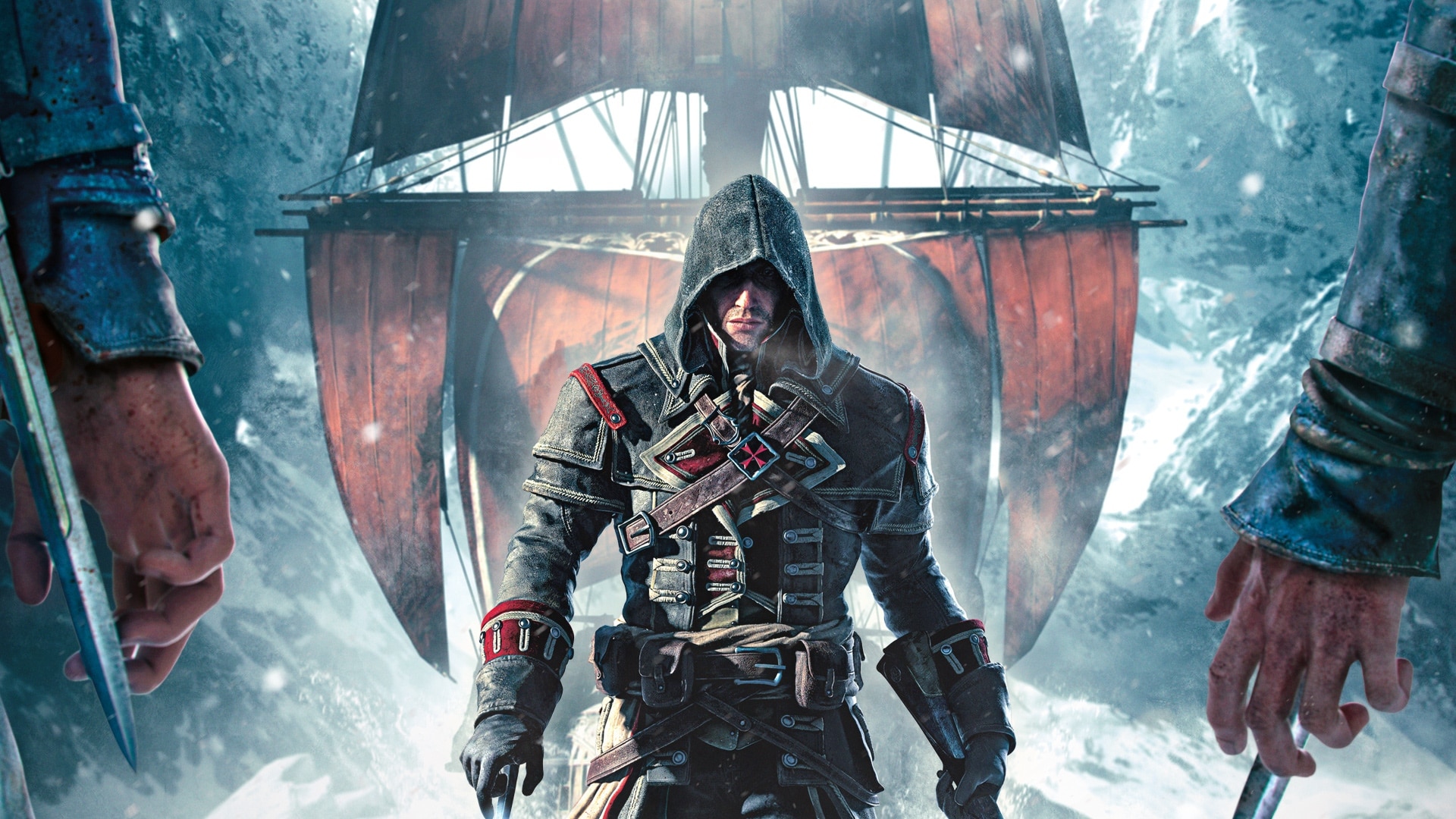
The “other one” of two “Assassin’s Creed” games Ubisoft released at the same time back in 2014, the last gen “Assassin’s Creed Rogue” is the relatively stronger game of this period. Built on the bones of “Assassin’s Creed IV: Black Flag” without adding any meaningful gameplay improvements, the game is carried through by its unique story and perspective. Putting you in the shoes of Shae Cormack, you play as an Assassin turned Templar hunting down his old order, “Anakin Skywalker/Darth Vader” style. The game tries to tie some loose ends from one of the most contentious periods of the series. Unfortunately, its placement as a story taking place before “Assassin’s Creed III” hurts its aspirations. “Assassin’s Creed Rogue” never escaped the shadow of being an overly elaborate “expansion” released in older hardware. Ultimately, it is a fun but inessential entry, one diehard fans of the series may enjoy. The way its ending meaningfully connects to the beginning of “Assassin’s Creed Unity” is really cool, though.
11. Assassin’s Creed III
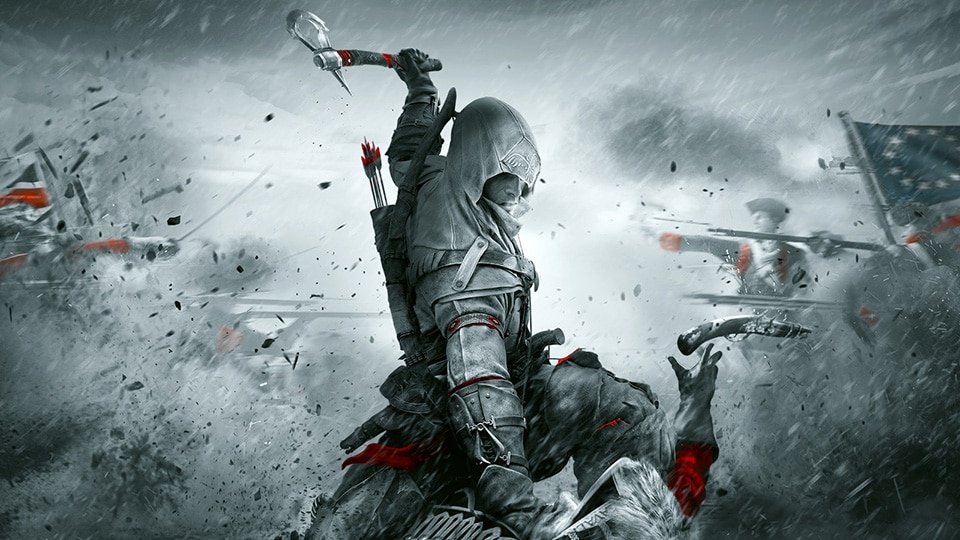
There was no denying the hype “Assassin’s Creed III” had leading up to its October 30th, 2012 release. After the conclusion of the “Ezio Trilogy,” it was finally time for the next big step. We finally were getting the next official numbered entry to the franchise which would take us to an entirely new period in the American Revolution. We finally would get an entirely new protagonist with Connor Kenway, the son of an English man and a Native American. We finally would get the conclusion of the modern day story dealing with the December 21st, 2012 end time prophecy. Hopes were high that this could be the biggest and best entry in the franchise.
At the time, it certainly was the biggest Assassin’s Creed entry yet, but the best? Hardly. In fact, even to this day, “Assassin’s Creed III” is considered one of the biggest missed opportunities of the entire franchise. A rushed story squandered the massive potential of its time period. Some really boring gameplay moments were at odds with how kinetic the rest of the game was. A surprising amount of bugginess hurt the game despite an alleged three-year development cycle. Everything came together to provide an experience that was less than the sum of its parts.
However, if you were to venture to the sides, exploring the world and the high seas, “Assassin’s Creed III” started to shine. It was the first “Assassin’s Creed” game where its side content more than made up for its shortcomings. It provided a template that would be fulfilled with a certain pirate adventure that would come after, and it was ultimately a fun game when taking its entire package in consideration (and one more enjoyable to go back to now that it’s been cleaned up). But it was an unfortunate missed opportunity considering its high potential.
10. Assassin’s Creed Revelations
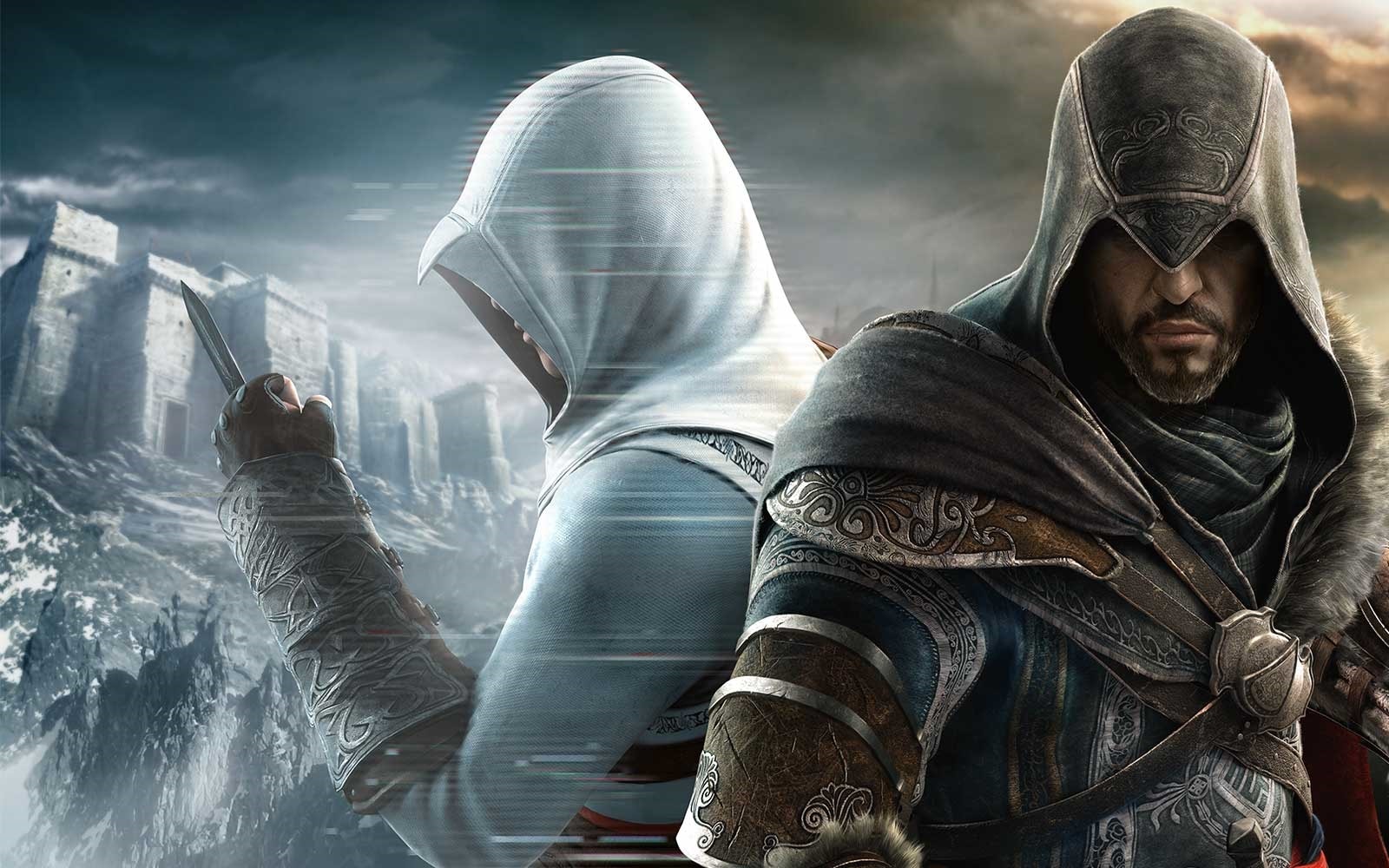
The final entry of the “Ezio Trilogy”, “Assassin’s Creed Revelations” was finally the entry in the franchise where “the law of diminishing returns” started hitting the franchise. As the third game in as many years following Ubisoft’s decision to annualize the franchise (“Call of Duty” style), it was very easy to see “Assassin’s Creed Revelations” as the filler stop gap before “Assassin’s Creed III.” Gameplay additions like the Tower Defense minigame (one you could easily skip if you were intentional about it), the bomb crafting, and the hookblade were superfluous at best. The city of Constantinople’s boring color hue made it one of the least interesting “exotic” locales in the franchise. However, a strong story that saw Ezio learn about the final days of Altair (which gave us five great sequences to play with the franchise’s original protagonist) as well as his imminent retirement made the entire experience worth it. It provided a great story hook that makes “Assassin’s Creed Revelations” a worthy entry still worth revisiting, even if it’s the weakest game from this franchise trio.
9. Assassin’s Creed
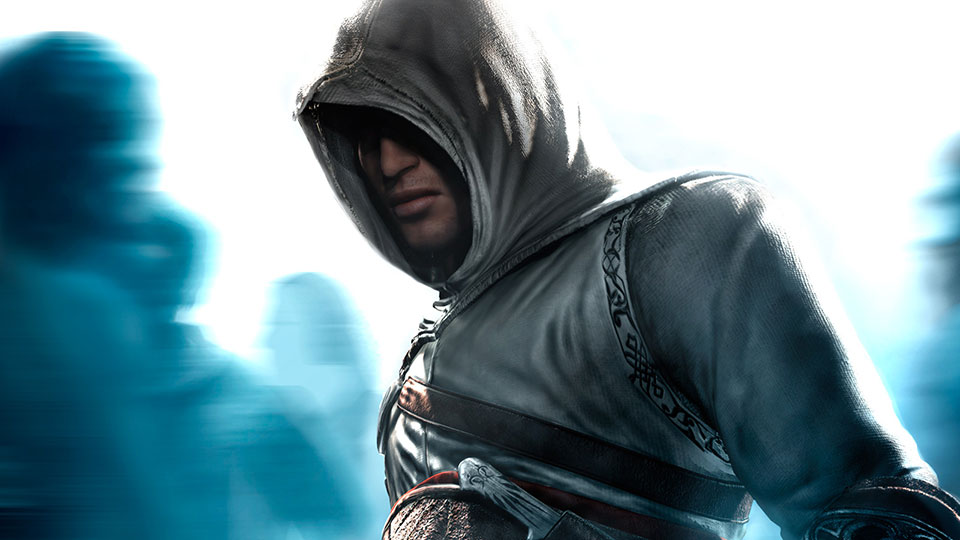
The one that kicked it all off in 2007 certainly looks skeletal compared to all the entries that came after. However, there is no denying that, when looking past the flaws (the unskippable cutscenes, a story that loves the sound of its own voice, its repetitive structure), the first “Assassin’s Creed” has a special feel to it which holds up well even when revisiting it. Future entries haven’t replicated the ethereal quality of the atmosphere of the major cities of Damascus, Acre, and Jerusalem. When considering how full of content (almost to a fault) some future entries are, coming back to the first entry which is so laser focused on its individual structure is refreshing. Paired with a visual style that holds up to this day (aided on console by the Xbox One X resolution patch and FPS boost on both Series X/S), the first “Assassin’s Creed” game manages to stand out as a flawed but unique first entry that’s cool to look back from a historical perspective. It helped birth such a sprawling, successful continuous saga in the first place, after all.
8. Assassin’s Creed Valhalla
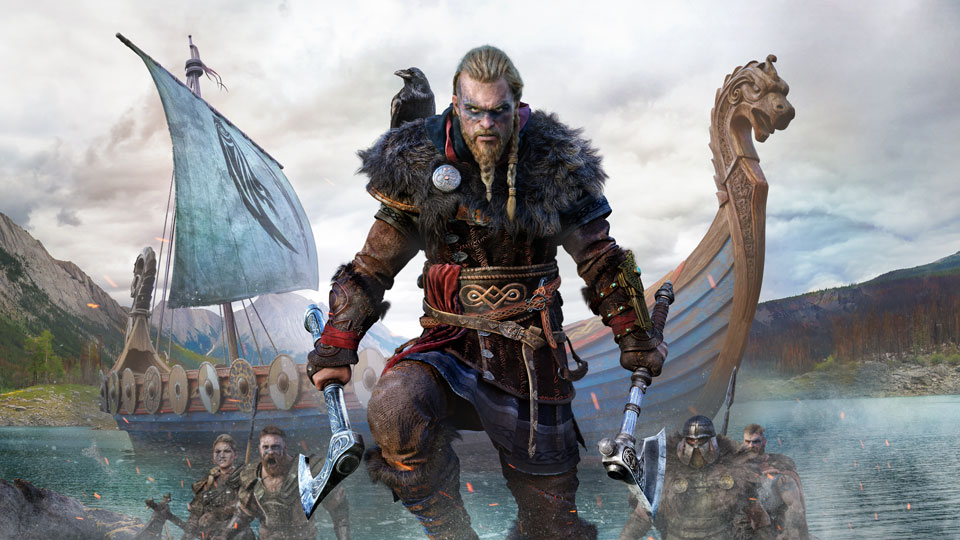
After the franchise deviations of the prior entry, “Assassin’s Creed Valhalla” saw Ubisoft trying to merge the Action/RPG era of the franchise with prior elements from the old school entries to make a compromised “best of both worlds.” For the most part, they succeeded. The return of an ability to finally kill enemies with one hit with your hidden blade (either through an early upgrade from the skill tree or an accessibility option) sought to reestablish the series’ identity after “Assassin’s Creed Odyssey” strayed too far from its roots. Colonial era England is presented in such a magical way to provide one of the most calming and alluring settings from the series, which is a stunning contrast to the violence of the Viking conquests that serve as the story’s backdrop.
“Assassin’s Creed Valhalla” also feels like the unofficial follow up to some of the ideas that the series toyed around unsuccessfully with in “Assassin’s Creed III”, finally making them coalesce together to fulfill the missed potential of that prior entry. It also provides a thematically rich story about going against the inevitability of fate with protagonist Eivor, his/her descendant Odin, and what’s happening with the second apocalypse of the modern day. “Assassin’s Creed Valhalla” proves to be one of the most consequential entries of the franchise, and a good first entry on the current generation of hardware with the PlayStation 5 and the Xbox Series X/S. It’s only held back from being one of the very best due to some bugginess and its gargantuan length (I finished it after 151 hours…).
7. Assassin’s Creed Mirage

If there was a big refrain within a lot of the hardcore “Assassin’s Creed” community after the release of “Assassin’s Creed Odyssey” and “Assassin’s Creed Valhalla“, it was two fold. Fans wanted the series to go back to something more digestible after the two last mainline mammoth-size adventures. They also wanted a game that harkened back to the roots of the franchise (ie. Not RPG numbers; stealth oriented one-hit kills). The massive success of “Assassin’s Creed Valhalla” gave Ubisoft all the excuse in the world to not acquiesce to those fan requests, yet they did it with this year’s “Assassin’s Creed: Mirage“. Originally conceived as the final piece of DLC for Valhalla before it got blown up to its own game, “Assassin’s Creed: Mirage” takes some of the design tenets of the original “Assassin’s Creed”, overimposed them unto Valhalla’s mechanics, and delivered a stripped down, stealth oriented “Assassin’s Creed” game paying homage to the old style while still taking advantage of the mechanical improvements of the modern era of the franchise. While the story is pretty anemic and inconsequential to the grand scheme of things (exposing the game’s original status as DLC), it goes a good job on both fleshing out the character of Basim, and prove to the world the “Assassin’s Creed” franchise still has plenty of juice within it outside the RPG nature of the prior three entries. Even though the stories told in those games are superior, “Assassin’s Creed Mirage” provides a nice blueprint that reestablishes the identity of the franchise again after Valhalla sort of flirted with it. I hope Ubisoft takes note as the series moves towards its “Infinity” platform.
6. Assassin’s Creed Odyssey
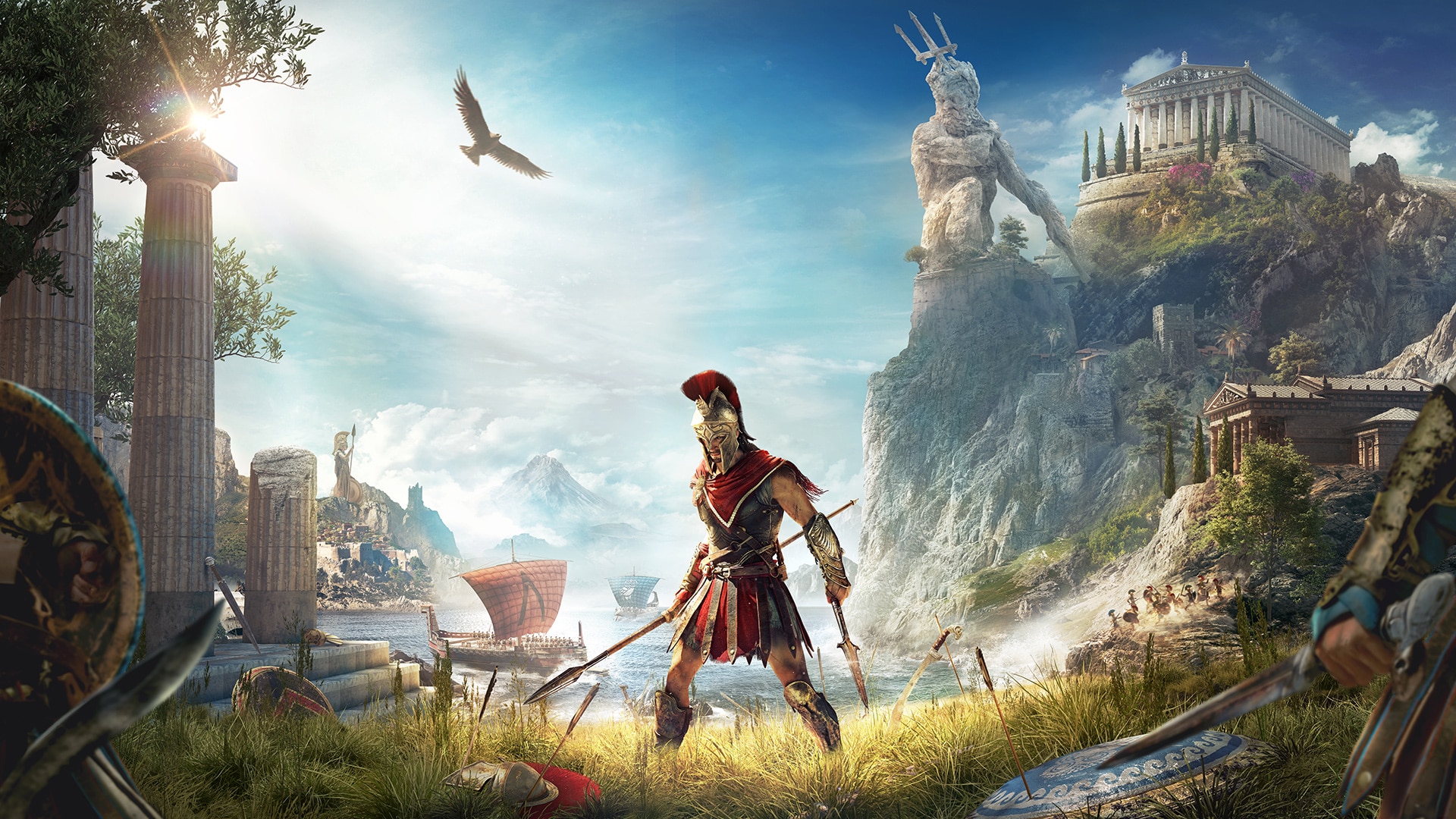
“Assassin’s Creed Odyssey” was a massive inflection point for the franchise when it released in 2018. It is an entry where Ubisoft almost fully shed established franchise staples to more fully embrace its “The Witcher 3: Wild Hunt” inspirations. “Assassin’s Creed Odyssey” embraces the outlandishness of being an almost demigod figure with protagonists Kassandra or Alexios, providing some of the most fun gameplay in the series while enjoying its beautiful recreation of Ancient Greece. When playing as Kassandra, the game almost feels like a “Wonder Woman” game we never got. The level of fun the game provides with its RPG structure carries it mostly, even when the rest of the game’s massive bloat and grindy feeling threatens to smother the proceedings. The scale and size of “Assassin’s Creed Odyssey” is a literal odyssey to itself. For some, it provides an endless amount of fun content to do. Others may balk at the sheer size of it all. However, when the game’s hooks grab you, the fun of Ancient Greece is one that’s hard to escape, even if it strays almost too far from the franchise it spawned from. It’s a great entry to revisit now, after a couple of patches and DLC that’s made the game better (which added some great new/pivotal “Assassin’s Creed” lore). Also, it takes great advantage of the current console’s 60 fps patch.
5. Assassin’s Creed Origins
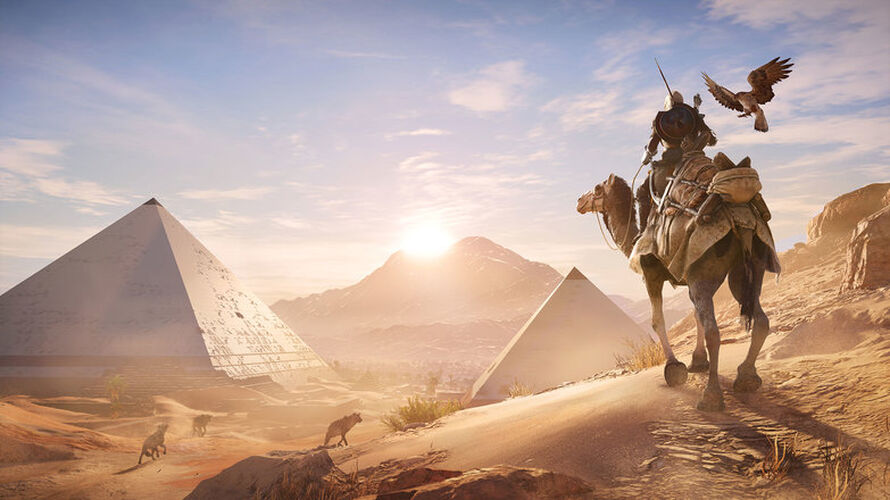
10 years after the release of the original “Assassin’s Creed,” Ubisoft went and reimagined the series gameplay after “the law of diminishing returns” finally caught up to them with the apathetic sales of “Assassin’s Creed Syndicate.” Taking the franchise all the way back to the very origin of the Assassin order (initially established as “The Hidden Ones”), “Assassin’s Creed Origins” puts us in the shoes of Bayek of Siwa, along with some sections featuring his wife, Aya, as they seek retribution over the murder of their son in the first Action/RPG entry of the franchise. This entry takes a few cues from “The Witcher 3: Wild Hunt” without going full sail with the inspirations until the entry after. While initially plagued with some growing pains (like getting used to the idea of upgrading your gear to have it be strong enough to do traditional things), the new formula eventually meshes well to refresh the franchise in an exciting new way. The Ancient Egypt setting is ripe with details and mystery, with a great sense of scale and majesty which never gets old. It’s also a great game to go back to with its recent 60fps patch on modern hardware.
4. Assassin’s Creed IV: Black Flag
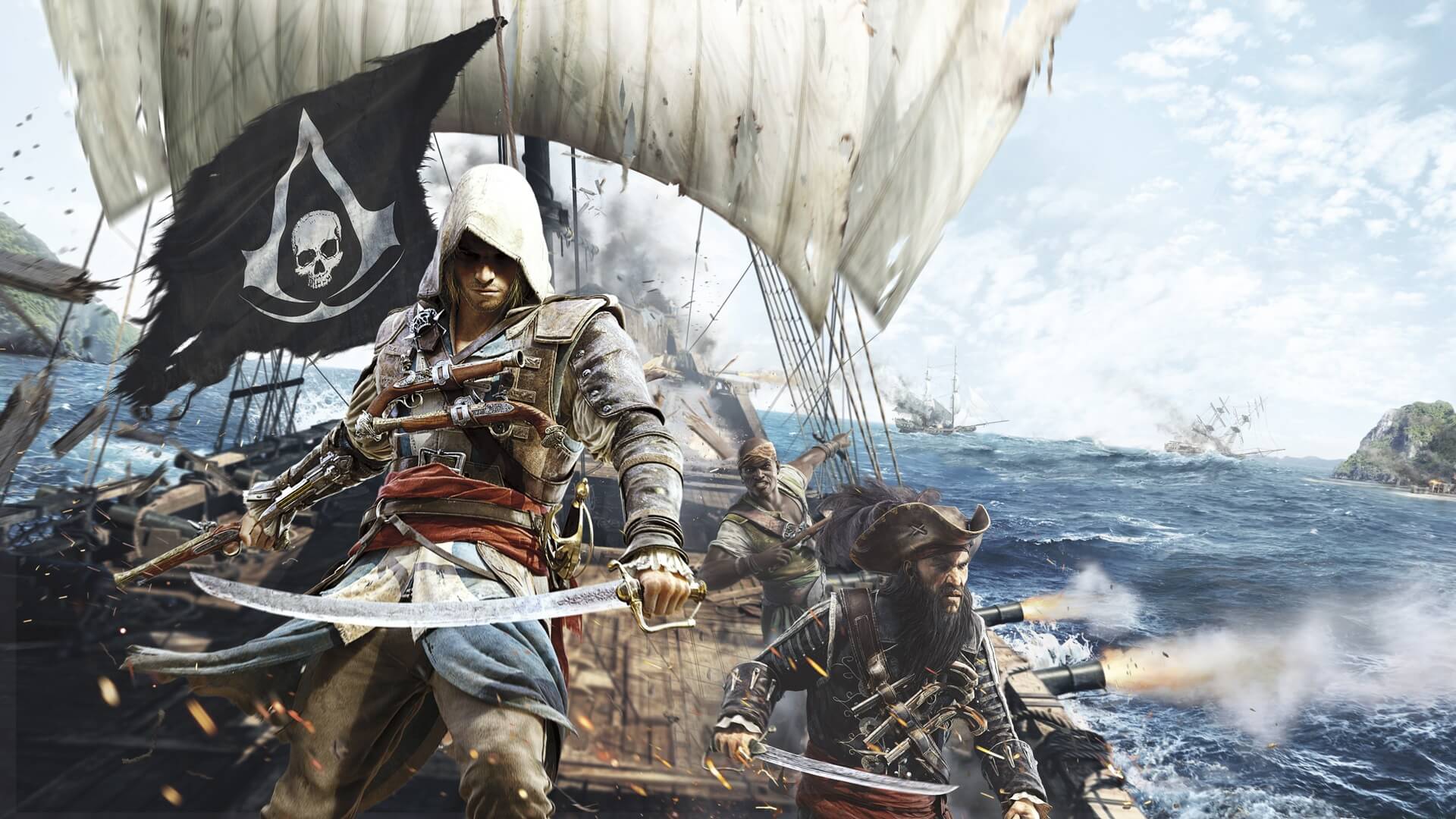
“Assassin’s Creed IV: Black Flag” takes the ideas introduced in “Assassin’s Creed III”, and gives them shape, meaning, and purpose, to provide one of the most fun open world sandboxes in the “Assassin’s Creed” series. Protagonist Edward Kenway is a hoot, a charismatic individual that hilariously crosses his path with the Assassin order, yet his interactions are so ancillary, they come off as filler compared to his high energy/high tide adventures. If anything, everything that makes “Assassin’s Creed IV: Black Flag” so good is everything to the sides of the story. It is one of the greatest pirate games ever made, even when the “Assassin’s Creed” parts try to undermine it (the gawdawful tailing missions!). After the dour missteps of “Assassin’s Creed III”, “Assassin’s Creed IV: Black Flag” was a great reset for the franchise, proving there was life left in the franchise after the future metanarrative ended on such a disappointing note.
3. Assassin’s Creed Syndicate
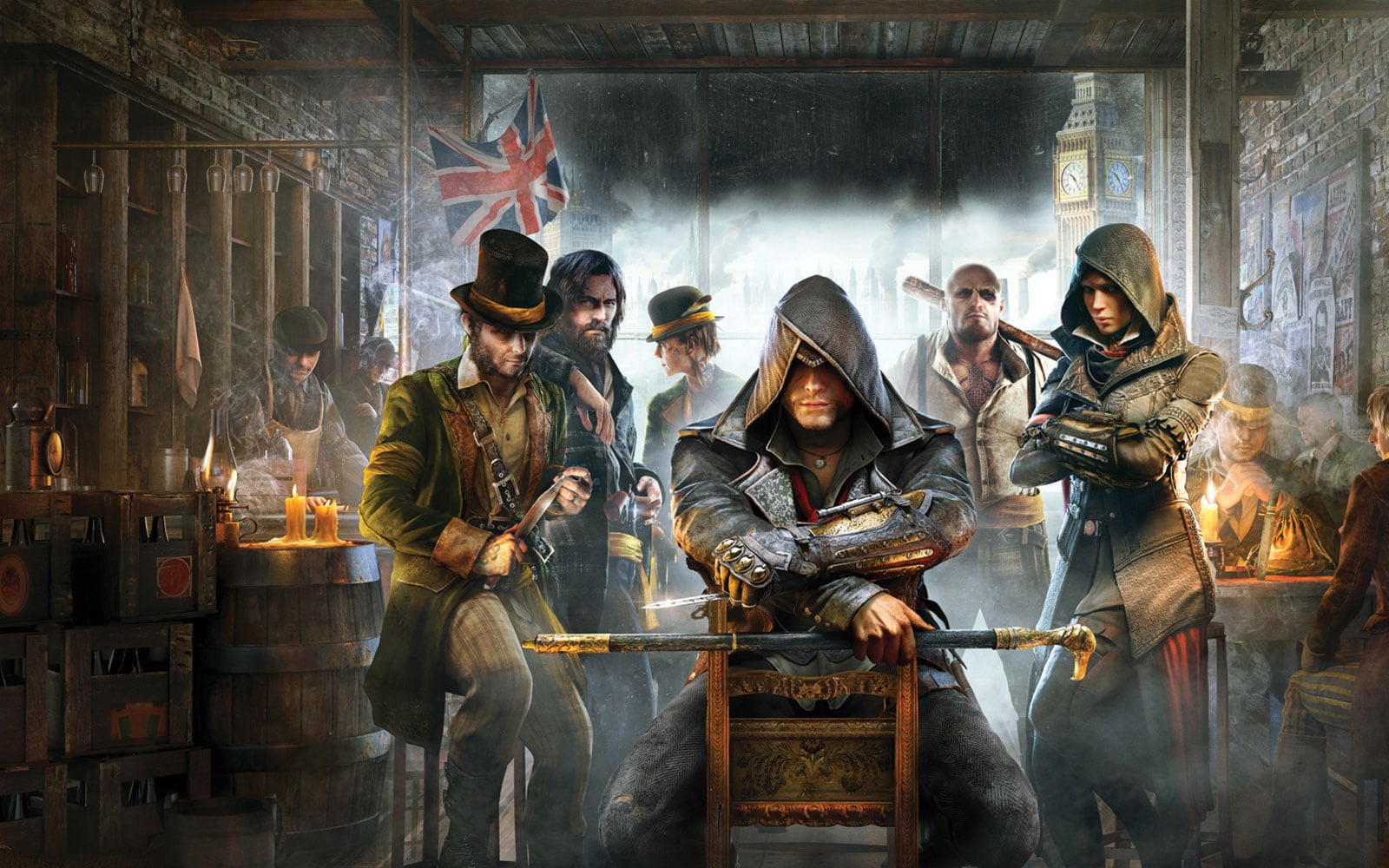
“Assassin’s Creed: Syndicate” is hands down the best entry of the franchise still using the old formula from the PlayStation 4 and Xbox One generation, and the one which unfortunately paid for the sins of the disastrous launch of “Assassin’s Creed Unity”. While paring back a lot of the ambition that led to the previous entry’s technical woes, “Assassin’s Creed Syndicate” made up its lack of technical ambition by providing the most fun entry in the “Assassin’s Creed” series mostly set in a city environment. With a steampunk Victorian London as the backdrop, “Assassin’s Creed Syndicate” embraces the tone of a Guy Ritchie film, and it never loses that sense of spunk as you liberate London with siblings Jacob and Evie Frye. While Jacob is a more generic wet blanket of a character, Evie Frye is one of the all time great “Assassin’s Creed” protagonists. Her antagonistic back and forth with Jacob elevates her brother in the few times they get to tag with each other through the game’s fun story.
With some few but intriguing developments in the modern day story (which had gone mostly ignored since the ending of “Assassin’s Creed III”), “Assassin’s Creed Syndicate” finally felt like the entry where Ubisoft started coalescing all the disparate elements of the franchise together once again. Unfortunately, the lagging sales cut the potential short, which led us to the relatively successful Action/RPG entries of the series. If you had any affinity for the older style of “Assassin’s Creed”, at least in the PlayStation 4/Xbox One era, I can’t think of a much stronger entry. It’s a great one to go back to, even if it hasn’t received any improvements in the years since.
2. Assassin’s Creed Brotherhood
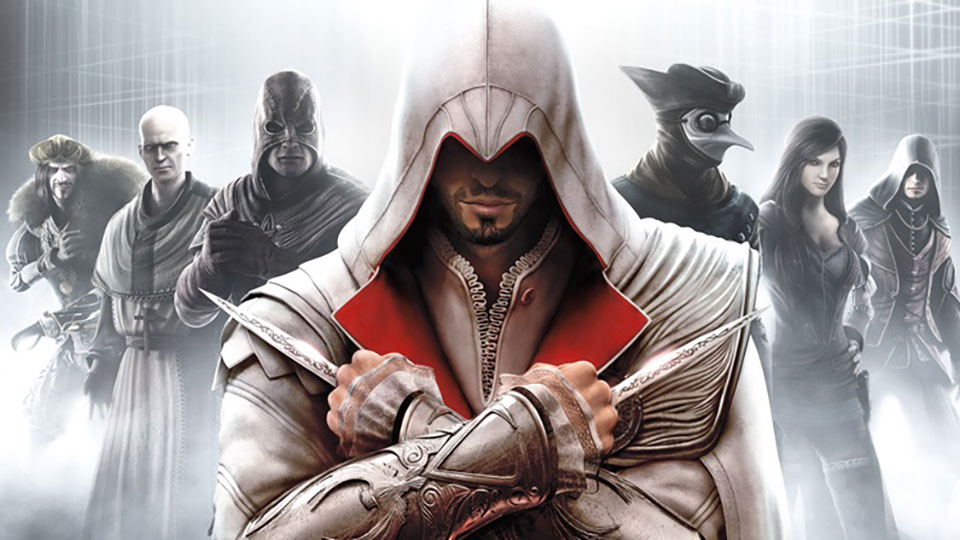
The one entry which managed to prove naysayers wrong, “Assassin’s Creed: Brotherhood” transcended any criticism of being an over-expensive expansion to “Assassin’s Creed II” and provided one of the most complete packages of the entire franchise. It managed to take the blueprint of “Assassin’s Creed II” and clean it up to a pristine sheen to fully realize its gameplay ideas. The city of Rome is one of the more expansive yet manageable cities in the franchise. The economic system which helped build your own Villa in the previous entry got translated full sail to your conquest of Rome, making the city feel like your playground. Combat got improved with the addition of chain kills, which helped diversify the combat further. And the multiplayer mode, which many feared would feel tacked on and out of place on a mostly single player franchise, turned out to be one of the more unique takes on multiplayer in the PlayStation 3/Xbox 360 generation. Had the story in the Ezio side of things felt more pivotal to the franchise (especially compared to the insane cliffhanger that closed out the modern day section), this could have easily been the ultimate “Assassin’s Creed” game.
1. Assassin’s Creed 2
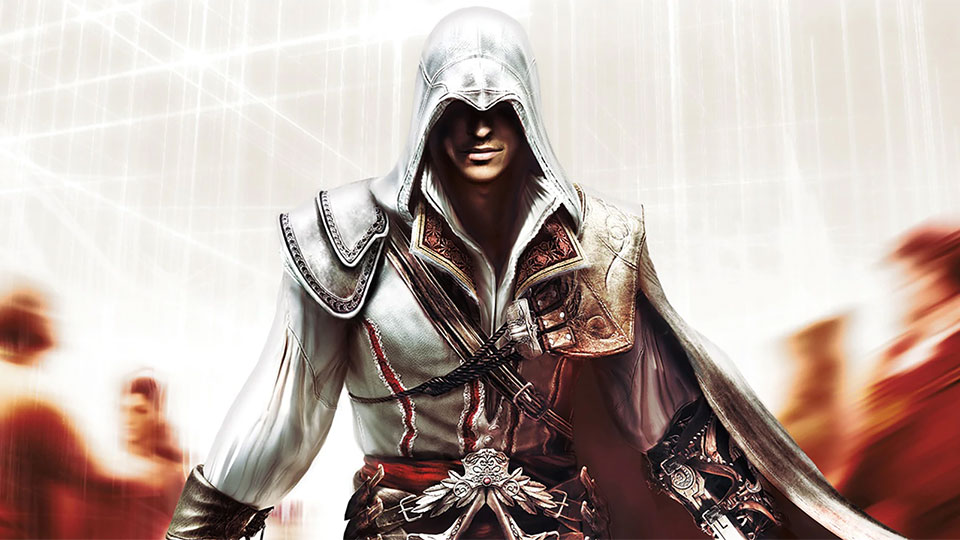
When the original “Assassin’s Creed” came out and impressed in parts and fell short on others, one thing was clear: it laid a blueprint for a potentially amazing sequel. Two years later, that potential started to finally be realized with 2009’s “Assassin’s Creed II.” A sequel which felt like such a leap/realization of the concepts and ideas of the original, it has become shorthand when we explain the quality leap of any sequel in relation to its original (“This sequel is the Assassin’s Creed 2 to game XYZ”).
The story of Ezio Auditore da Firenze, where he goes from a young Michael Corleone-style rich brat set on revenge towards the people that murdered his father and brothers, to a wise assassin who embraces the tenets of the Assassin’s Creed, is one of the PlayStation 3/Xbox 360 generation’s most memorable moments. The cities you visit here are some of the best in the entire series, capturing the whimsical nature of Renaissance Italy, which serves as such incredible contrast in comparison to the self-serious/eerie atmosphere of the Holy Lands. How the story in the past intersects with the present day story provided one of the coolest moments of the entire series and set the franchise toward the greatness that was very soon to be realized with “Assassin’s Creed Brotherhood”.
“Assassin’s Creed II” was Ubisoft proving that this was a franchise that could compete with the greats. Even ’til this day, the franchise has never felt as big and as vital as it was here.
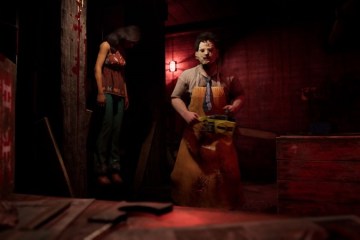

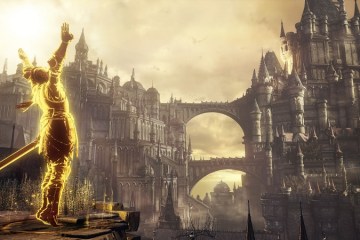
Excelente!!!
This list was a head scratcher. How do you put mirage ahead of asc 3. Mirage was 10 hours of dlc
Mirage should not be listed better than any of ac as it was a dlc sold as a full game and was boring af.
Unity being so low is such a buzz kill
Wrong
The one who came up with this list should be sentenced to death for his war crimes.
Sounds like the author is still stuck in 2010. Horrible list.
Syndicate a number 3? Absolutely Based.
The RPGs at any rank higher than “worst”? Broke